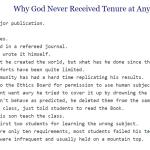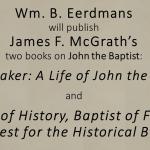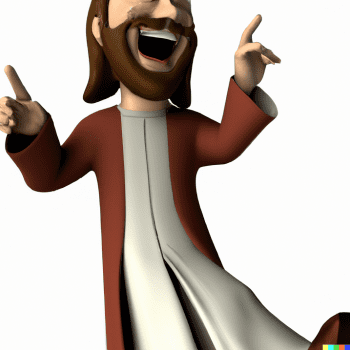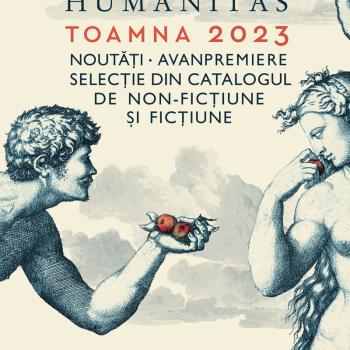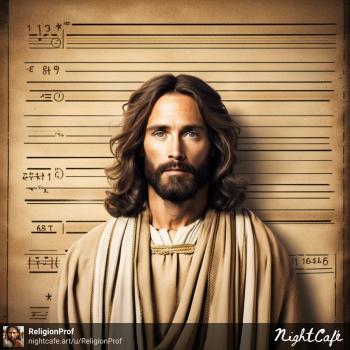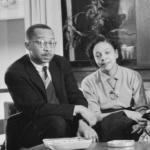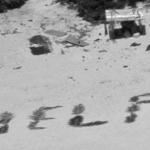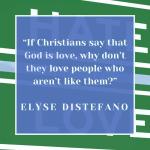Sometimes moments in the church year or the liturgy spark insights in scholars in attendance. Last year during Holy Week something clicked and I realized there is a major discrepancy between something in the Gospels on the one hand, and widely held views of the significance of Jesus’ death on the other. It seems appropriate to share it now as Holy Week 2023 draws near. At this time in the church’s calendar, many of us turn our thoughts to the Last Supper, Jesus’ Passover meal with his disciples depicted in the Synoptic Gospels, and in connection with that to the Lord’s Supper that commemorates it and emerged out of it. We also turn our attention to the crucifixion. Yet I confess that it was only last year that for the first time I noticed something. It was prompted by talking with a student about the words ascribed to John the Baptist in the Gospel of John, where he says with reference to Jesus, “Behold the Lamb of God.” It was also prompted by my discussions with students of whether the Last Supper was a Passover meal, John’s divergent chronology that has Jesus crucified on the Passover, and Paul’s reference to “Christ our Passover” having been sacrificed for us.
So here’s the question: if Jesus supposedly gave voice to that kind of theological interpretation of his death at the Last Supper, then why did he take bread and say “this is my body” rather than taking lamb and saying “this is my body”?
There is a disconnect between the place where Jesus focuses his attention and offers symbolic interpretation in the meal, and the language used to connect Jesus’ death with sacrifice and with Passover.
Now, to be sure, one easy explanation would be that the church, in developing the Lord’s Supper or Eucharist, recognized that eating meat was expensive and rare and so chose bread. That would fit the view that the Lord’s Supper is completely an invention of the later church. Yet that still leaves the question unanswered of why they chose to create a ritual meal that is disconnected from the symbols they spoke and wrote about, referring to Jesus as lamb.
It thus seems more likely that the church, however much it developed and changed things after the fact, was constrained by something Jesus had said and done, whether on one particular occasion or, more likely, in general as part of his practice at meals.
I often wonder whether the Didache gives us clues to what Jesus’ regular practice might have been. I am also convinced that the Mandaean practice of eating bread and drinking water (like the Elchasites!) in conjunction with baptism indicates that a ritual meal was something that was found in John the Baptist’s movement. Telling people immersion in water can take the place of sacrifice would have been a hard sell. John surely made the ritual of baptism elaborate enough to turn it from something ordinary and seemingly mundane into something laden with symbolism and a sense that something powerful was at work.
There was a powerful symbolic use of bread in John’s community, and a powerful symbolic consumption of lamb, bread, and other items at Passover. If Jesus’ aim at his final meal before his arrest had been to say that he will become the Passover lamb, his choice to use the bread and not the lamb as symbolism is baffling. The best explanation is that this was not Jesus’ intention and not what he did. But if his followers invented the words supposedly from Jesus that made a connection between Passover and his death, presumably they would have had him refer to the lamb. All this suggests that Jesus did indeed say something about bread and wine, something that may not have been quite what the Gospel tradition eventually claimed, but provided a basis for it.
What do you think? How do you connect the dots between Passover and the Lord’s Supper, New Testament Gospels and Didache, bread and lamb?


